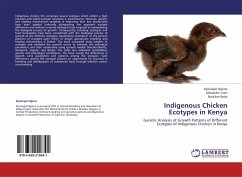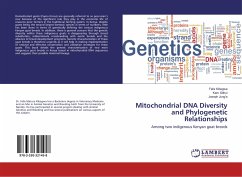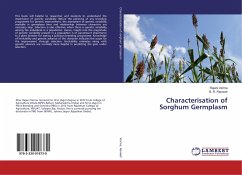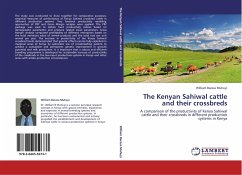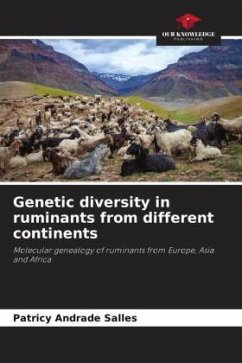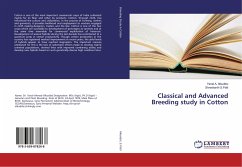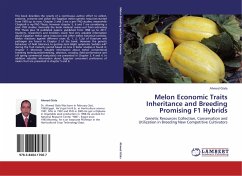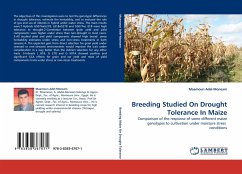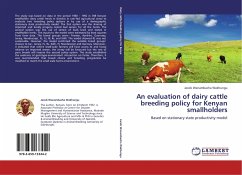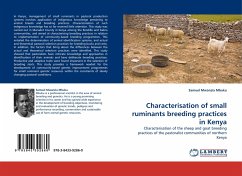
Characterisation of small ruminants breeding practices in Kenya
Characterisation of the sheep and goat breeding practices of the pastoralist communities of northern Kenya
Versandkostenfrei!
Versandfertig in 6-10 Tagen
32,99 €
inkl. MwSt.

PAYBACK Punkte
16 °P sammeln!
In Kenya, management of small ruminants in pastoral production systems involves application of indigenous knowledge pertaining to animal breeds and breeding practices. Characterisation of such indigenous knowledge has so far received little attention. This study was carried out in Marsabit County in Kenya among the Rendille and Gabra communities, and aimed at characterising breeding practices in relation to implementation of community-based breeding programmes. This entailed the determination of animal identification systems, and actual and theoretical pastoral selection practices for breeding...
In Kenya, management of small ruminants in pastoral production systems involves application of indigenous knowledge pertaining to animal breeds and breeding practices. Characterisation of such indigenous knowledge has so far received little attention. This study was carried out in Marsabit County in Kenya among the Rendille and Gabra communities, and aimed at characterising breeding practices in relation to implementation of community-based breeding programmes. This entailed the determination of animal identification systems, and actual and theoretical pastoral selection practices for breeding bucks and rams. In addition, the factors that bring about the differences between the actual and theoretical selection practices were identified. This study showed that pastoralists have intricate knowledge and approaches in identification of their animals and have deliberate breeding practises. Productive and adaptive traits were found important in the selection of breeding stock. This study provides a framework needed for the development of community-based genetic improvement programmes for small ruminant genetic resources within the constraints of slowly changing pastoral conditions.



